Tug of War in a Quiet Region
I’m sure you’re familiar with the many acts of subversion against Australia directly from China (& the seeming lack of acknowledgement of such by Australia), but I wanted to discuss the other lesser known islands that still pack a decent economic punch for their size (or perhaps they could) that China has their sights upon.
While it is well known that China has been making serious investments throughout Africa, Central/West Asia as well as lots of Eastern Europe, it’s less known that they have their eye on Oceanic islands which are a strategic stronghold for them in the Pacific.
Oceania is often brushed over as just being New Zealand and Australia and yes, while their influence from these two is tremendous, I am referring to the smaller islands that composed of Polynesia, Micronesia and Melanesia. Militarily these islands could be quite strategic locations, especially for China seeking to break free into the Pacific. Currently, they are being surrounded by US Navy ships with a stronghold in the region. Unfortunately, smaller countries such as these don’t have the fire power, capital, economy or influence to not become pawns in a big geopolitical chess game. For sake of this article, I just want to highlight some countries in the region known as Melanesia.
Did You Know China is Building a Port in Peru? Join as a Member for More
Melanesia Islands
Melanesia includes: Solomon Islands, Papua New Guinea, Vanuatu, Fiji, and New Caledonia.
And while you may be thinking, “I hardly knew these places existed–what minerals are there?” Well… there’s a lot.
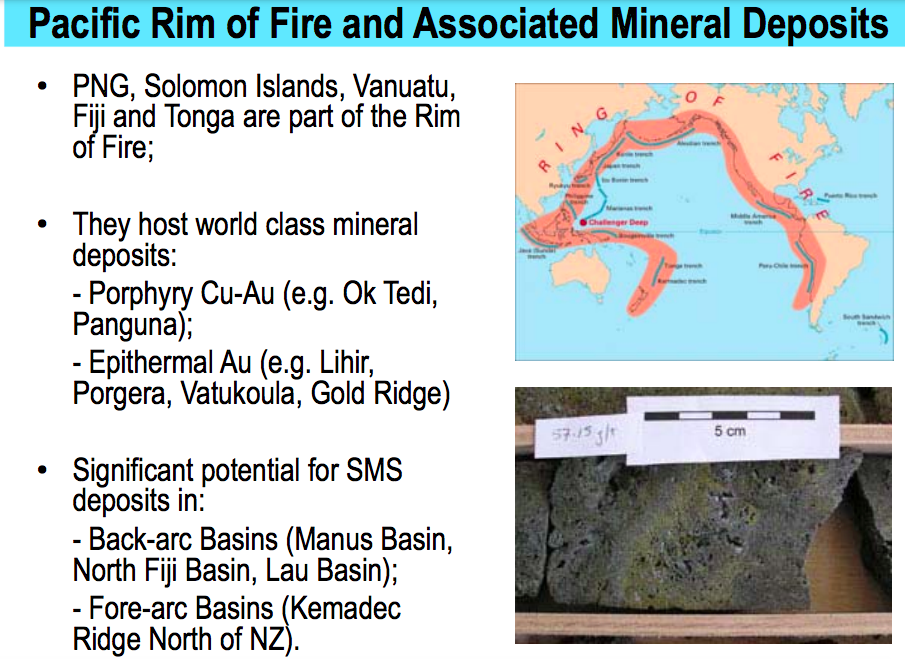

- New Caledonia is rich in nickel and iron
- New Guinea has some of the world’s largest gold mines with further potential expansion yet to take place. As a result of this, there is siginificant copper in the region as well with existing (& worsening) copper supply deficits.
- The region has significant wood resources to be exported (paper, charcoal, lumber, construction, foods)
- Fiji is known for its large gold deposits
- Natural gas deposits to the east are also known however lack infrastructure to fully exploit it
- Manganese for battery-making is prolific throughout
- It comes as no surprise, fisheries are abundant, though they are declining in recent years.
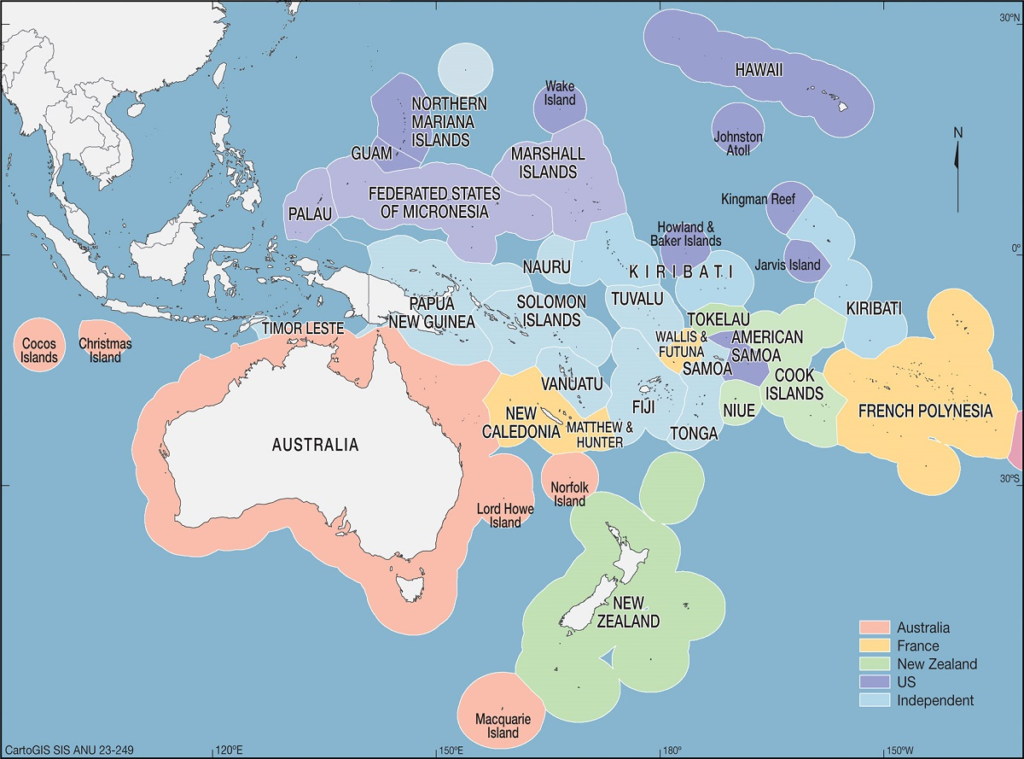
Notice the current playing field. France, New Zealand, Australia and United States have secured their proxies–but there are a list of Melanesian states that independent and “up for grabs”.
Solomon Islands
The first case of this is in the Solomon Islands; a relatively wealthy area for its size. They are an archipelago nation consisting of six major islands and over 900 smaller ones. The island country is geographically isolated with weak infrastructure, and reliance on natural resources to stay afloat. Agriculture, forestry, and fishing are the main sources of income for the population who are constantly contending with limited access to international markets, natural disasters and most of all, political instability–perfect grounds for China.
[Did you see they are launching a citizenship by investment program? Contact odc@opendoorconsultancy.net to learn more and how he can assist in your international planning/important Plan B setup!]The Solomon islands government traditionally have received donations from ‘Western’ locations such as the European Union, Japan, Australia, New Zealand and interestingly for China, Taiwan. In the late 80s, Taiwan provided substantial aid to the islands. This relationship was part of Taiwan’s broader strategy to maintain international recognition in the face of the People’s Republic of China’s growing global influence–for Taiwan, they’re treated as an independent country–for Solomon Islands, free healthcare, education and buildings. But this has changed as do the times. By September 2019, the Solomon Islands decided to sever its diplomatic ties with Taiwan and establish formal relations with China.
The most egregious example of their new relationship with China has come last year. Solomon have signed a protection deal for domestic security that they claim they “needed” to fight internal security and climate change (“needed” seems to be used loosely here). These domestic concerns related to Solomons expanding population (it is one of the only countries in the entire world with a fertility rate above 4) and saying that it’s economy was expanding much slower than their population. To manage this inevitably unemployed group, the deal allows China to openly send police, military personnel, armed specific units of law enforcement among other groups. While it does not outright allow for a Chinese military base, it does allow them to frequently send equipment, personnel and transit stopovers on the island. It lays the foundation required to have a controllable interest.
China may very well be executing their influence already as the islands have just blown off Biden at the Pacific Islands Summit.
This Secretary of Foreign Affairs further spewed the ideological non-sense that “our problems are to develop our economy and our number one threats are… climate change“. So, their solution to the world warming up is more partnership with a genocidal regime who pump more pollutants to the environment than any country on the planet.
In a further turn, Solomon’s secretary of foreign affairs suggested to Australia that they should self-reflect on whether they had been “fair” to the islands by scrutinizing the military deal. Australia and other nations also have security arrangements with the Solomon Islands. They are effectively signing themselves up to become a proxy in the region because… oh yea that’s right, CLiMaTe ChAnGe. It’s hard to make sense of further information of what the secretary said further as he sounds like a student presenting a book report after not reading the book. Regardless, they’re on the take.
Vanuatu
Vanuatu has received a lot of attention for their no corporate income tax and citizenship by investment program, but they too have gained the attention of China and the USA governments. In Vanuatu, it’s less about military support or vast mineral deposits; instead the playing field is political. Each of the political parties support being aligned with different powers, being proud puppets at the podium.
In 2022-2023, Ishmael Kalsakau’s administration was in power which held largely pro-Western views. He supported a U.S. Embassy in the islands; more aid; and the reintroduction of development by France, the country’s former colonial master before eventual independence. He declared he welcomed Chinese investment, but he’s skeptical of Beijing’s goals—and supported a security deal with Canberra (Australia).
His main opposition was former Vanuatu Prime Minister Bob Loughman, a pro-China leader and has made several attempts to oust him. It’s not the first time China has been key to the archipelago’s politics; in 2004, a secret deal by then-Prime Minister Serge Vohor to switch diplomatic recognition away from Beijing to Taipei toppled Vohor’s government, and the deal was rescinded.
Since, a Pro-China candidate with the Progressive People’s Party had replaced Kalsakau for 32 days until the incumbent Prime Minister (Charlot Salwai) came to power who remains today. His party is a split from Kalsakau’s political party but remains pro-Western/French.
However, attitudes may be changing in Vanuatu. Months ago the first-ever foreign policy document from the government was published stating its call for being a more independent nation with controlled borders and an eagerness to support it’s people. It describes Vanuatu as being “unwillingly” thrust into the power competition in the Pacific and having great demands placed on its diplomacy as a result.
Despite the Vanuatu government declaring they have a new updated comprehensive document on where they stand with respect to certain foreign policy matters–the reality is that this is a government that changes power, rules, policies and programs frequently. Furthermore, Koroi Hawkins, writer with RNZ Pacific Editor recently stated that he was in Vanuatu and met with the government who described Vanuatu as being ‘staunchly non-aligned’ on most issues.
What leverage could Vanuatu, in its current form, hold over the superpowers of China and Australia? It’s sad to say that they’ll likely be a long for the ride.
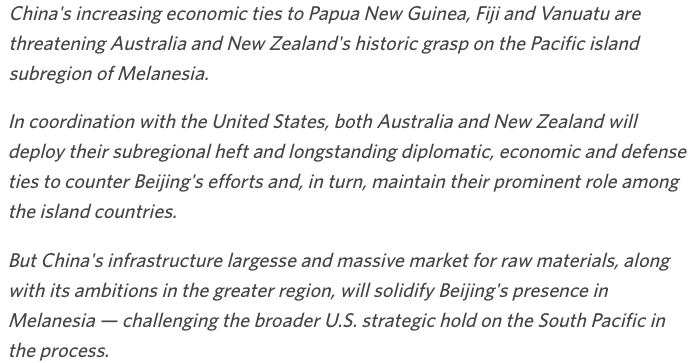
Fiji
Fiji established quite regular and normal trade relationships from 1997 and strengthened further in 2001 with Western forces, however following the 2006 military coup of Fiji they took a different path. Western powers condemned the overthrow whereas the Chinese Foreign Affairs Deputy Director gladly said:
We have always respected Fiji’s status as an independent nation and we have called on the other countries to do the same and reconsider their attitudes towards Fiji and the current situation in the country.
Fiji has friends in China, it has friends in Korea, it has friends in other Asian countries. We’re no longer relying on Australia and New Zealand. And in any event,the United States was not doing much for Fiji anyway
Fiji’s Finance Minister, 1 year following the coup
Fiji was on a Pro-China slant until the return to the elected government in 2014, where the previous relationships were restored with Australia, New Zealand and the United States. When Bainimarama’s Fiji First regime was ousted by a coalition of parties dominated by Sitiveni Rabuka’s People’s Alliance Party in the 2022, it was expected that the new government would be less friendly towards China. Soon after the election, Rabuka’s made a statement by cancelling a meeting with the visiting Chinese foreign minister in April 2023, the March reinstatement of the Taiwanese mission’s name to Trade Mission of the Republic of China (Taiwan) to Fiji (a formal change), and promises of an end to Fiji’s longstanding police cooperation agreement with China (a near 20 year agreement).
But you can never trust a politician…and the West had fallen asleep towards Chinese interests. Since then, the diplomatic upgrade of the Taiwan Trade Office was reversed, Fiji withdrew its signature from the 51 country statement at the UN calling for an end to China’s persecution of its Uighur minority and they had simply revised the Chinese policing agreement. Fiji also accepted large Chinese grants for the construction of roads and even allowed China to help with development of their ports. They’ve gave the green light on the creation of a Chinese-owned shipbuilding industry in their waters, too.
The economy relies on natural resources such as timber, fish, gold, copper and hydropower; a growing tourism industry; and payments from Fijians working abroad–Fiji is wealthier than people think
Fiji’s current Prime Minister Sitiveni Rabuka aims that this won’t ramp up to have a military conclusion–further calling that the islands should be peaceful nations. He said to a number of neighbouring islands at a recent summit “they [US and China] are trying to polarize the islands into their own camps…”
Having said this pretty talk, the battle is ongoing. Japan’s (otherwise a “pro-West” country) new funding facility known as the “Official Security Assistance” framework says it “will provide equipment and supplies as well as assistance for the development of infrastructures to like-minded countries.”
Can you guess one of the four countries added by Japan? Fiji.
Like Vanuatu, Fiji has long held the position of “friends to all, enemies to none.” However in reality, they have been playing catch with Chinese and Western interests back and forth for two decades, too.
Papua New Guinea (PNG)
China has a clever tactic of using a wolf in sheep clothing with the use of their state-owned-enterprises or SOEs in PNG. They are allowed to operate in country of these islands (after all, it’s a company and jobs that wouldn’t be there otherwise!). From from Beijing’s perspective, it sees SOEs as an extension of the state apparatus under its “military-civil fusion” policy and SOEs are required to support China’s official policy and goals. At present there are at least 40 Chinese SOEs operating in Papua New Guinea.
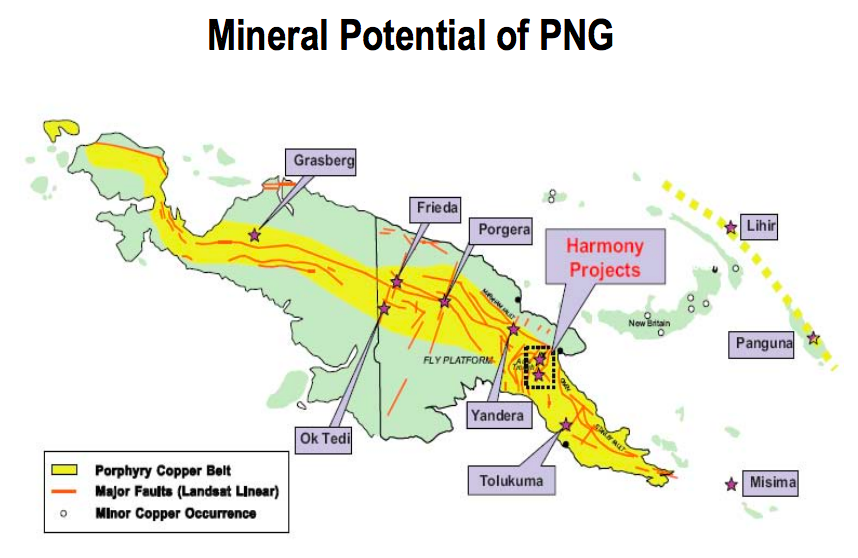
Many of these operations are in the oil-and-gas sector that seeks to dominate the economy and get over the previously established links with Australia and New Zealand with PNG. This is done in conjunction with playing victim by accusing Australia of using “unfounded” anti-China sentiments and doing what they can do to block Taiwan’s relationships with PNG, too.
However, Australia is still fighting back. Just recently, Papua New Guinea is set to enter Australia’s National Rugby League (NRL) in 2028, after signing a security deal with Australia. Australia will provide 600 million Australian dollars ($382 million USD) over 10 years to support their team’s entry to the NRL.

If you’re interested in learning about an interesting gold mine here, join as an On The Ball Member today
Papua New Guinea makes progress on country’s first offshore oil and gas development as of June 2nd, 2024
Not Melanesia but another mention–Tonga
Tonga has established military relationship with China since 2001. During the capital riots in 2006, China seized the opportunity to distribute 118M dollars of loans at a measly 2% interest rate–much of which went to Chinese construction companies on the islands (classic form of economic warfare). Tonga has stayed true to the support of China’s ambitions of a ‘One China policy’ with Chinese news even stating their relationship was “cooperative in all areas and kept a sound coordination in regional and international affairs”.
But when you play with the dragon, expire fire. In Q2 of 2020, Tonga asked China to restructure their existing debts after they became the largest debtor of all the Pacific Islands to the Chinese communist regime (most of which was infrastructure-driven). Tonga is already reliant on foreign aid and remittances from abroad causing their external debt to truly weigh down upon them. As of 2024, 90% of all their debts are external debts and using 2020 figures, 66% of this external debt was owed to China alone.
From August 2023, a report from the International Monetary Fund states:
…public debt-to-GDP ratio is projected to rise and remain above the 70 percent debt-distress benchmark starting in FY2033. This mainly reflects significant development spending needs over the long term to achieve its climate resilience and Sustainable Development Goals (SDGs). Debt obligations are largely external, with over half to China Exim Bank. Debt repayments are expected to surge in FY2024, mainly to China Exim Bank, and stay elevated at over 3 percent of GDP until FY2027.
They are not the only country who’s burning their country away to “save the climate”
Just last year, US Secretary of State Antony Blinken has flown to Tonga to open up a new US embassy reiterating the danger of accepting Chinese investment in the region. The US administration has been insisting that predatory economic activity has been done by China in Tonga and neighbouring Polynesian states. Not only is this the first US embassy for the little island country, it’s the first time a US secretary of state has visited the country–which tells me of the importance of this region.
Not Getting Wealthier, Alone
I have found an excellent resource that tracks and maps aid and development finance flows from the international community to the Pacific Islands region with complete data from 2008 to 2022.
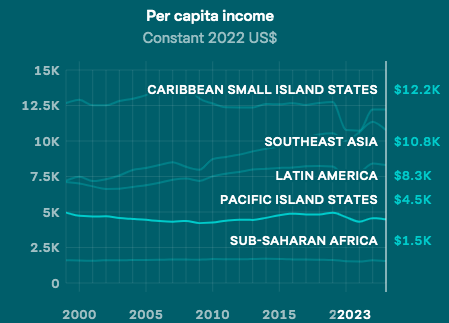
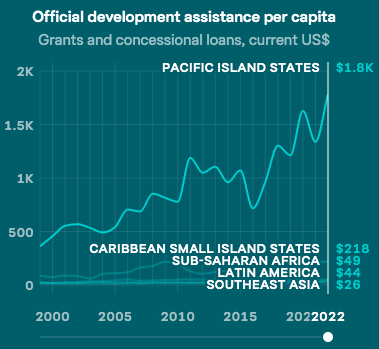
This area has not grown near as much as other countries (in fact its economy has shrunk) and it’s become more dependent on assistance payments.
Closing
The general trend is that many of these countries like to talk of independence, neutrality, and sovereignty but they soon make a lopsided move that favours one side or the other. Moreover, it’s questionable what these island countries have to offer that could grant them leverage over these interests, especially where entire political parties may run on the promise of welcoming foreign interests to do all the development for them.
I believe China is winning this proxy war thus far by being more strategic and perhaps more diligent than Western powers. Their aim at vital economic points such as educational (subversion), ports and trade (necessary for resource export) and energy/mining companies to exploit rare earths, gold and oil makes China particularly powerful to overcome the islands in a de-facto manner.
Once again, subscribe and grab my free email newsletter to stay up to date with this region! This is an area that has gone under many people’s radars but it is currently another war ongoing that signals once again, we are in something amounting to a World War III.
#StayOnTheBall
Jonah from Tonga preparing to deal with Chinese & US insurgents


